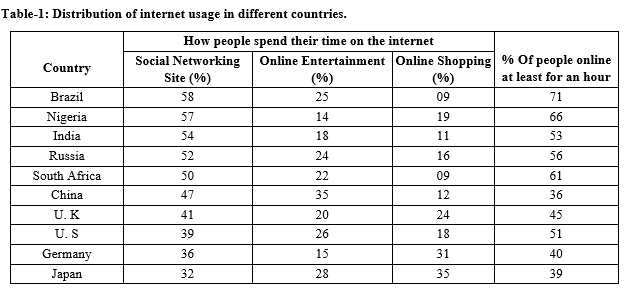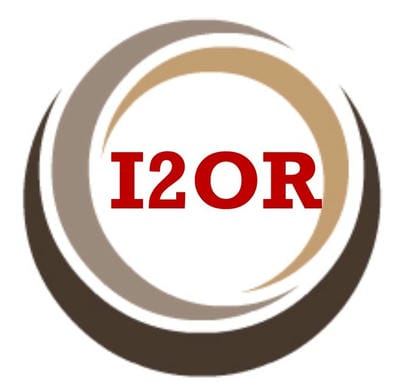Internet-Passion or Obsession
Abstract
Scientists traditionally use the term 'Addiction' for substances that clearly abet physical dependence. However new studies indicate that as far as the brain is concerned a continuous sequence of rewards can even risk the brain to be trapped in a ceaseless chain of compulsion. Irrespective of the reward, it’s like a chemical reaction or an experience such as eating, gambling, etc. Internet addiction is the latest form of addiction. Moreover, various studies have shown the escalated influence of excessive internet use on the masses. This attracted the considerable attention of media and researchers. Internet Addiction (IA) causes severe changes in lifestyle. It affects not only physically but also mentally. It hijacks our hormones and causes several disruptions. It can change the basic nature of a person, which could even hassle out real life. This paper aims to provide brief information on IA, its causes, its symptoms including both mental and physical, diagnosis, and its treatment. In this article, the effect of the internet on our society is mentioned. The familiar nature with the benefits of the internet is quite well known, but it is also important to note the second face of the card.
Downloads
References
Yuan K, Qin W, Wang G, Zeng F, Zhao L, Yang X, et al. Microstructure abnormalities in adolescents with internet addiction disorder. PloS one. 2011;6(6):e20708. doi: 10.1371/journal.pone.0020708.
Bagby RM, Vachon DD, Bulmash EL, Toneatto T, Quilty LC, Costa PT. Pathological gambling and the five-factor model of personality. Personal Indi Diff. 2007;43(4):873-880. doi: 10.1016/j.paid.2007.02.011.
Young KS. Internet addiction: The emergence of a new clinical disorder. Cyberpsychol Behav. 1998;1(3):237-244. Available at http://netaddiction.com/uploads/Addiction_to_Internet.pdf.
Cash H, D Rae C, H Steel A, Winkler A. Internet addiction: A brief summary of research and practice. Curr Psychiat Rev. 2012;8(4):292-298. doi: 10.2174/157340012803520513.
Young KS. Psychology of computer use: XL. Addictive use of the Internet: a case that breaks the stereotype. Psychol Rep. 1996;79(3):899-902. doi: 10.2466%2Fpr0.1996.79.3.899.
Headache Triggers and Tips (website blog). Mount Sinai Center for Headache and Facial Pain, New York. Available at https://www.mountsinai.org/care/neurology/services/headache/triggers#:~:text.
Rabadi L, Ajlouni M, Masannat S, Bataineh S, Batarseh G, Yessin A. The relationship between depression and internet addiction among university students in Jordan. J Addict Res Ther. 2017;8(6):349. doi: 10.4172/2155-6105.1000349.
Young KS. Internet Addiction Manual: Scoring. Available at http://netaddiction.com/wp-content/uploads/2015/11/IAT-Manual.doc.
Demetrovics Z, Szeredi B, Rózsa S. The three-factor model of Internet addiction: The development of the Problematic Internet Use Questionnaire. Behav Res Meth. 2008;40(2):563-574. doi: 10.3758/BRM.40.2.563.
Łukawski K, Rusek M, Czuczwar SJ. Can pharmacotherapy play a role in treating internet addiction disorder. 2019;20(11):1299-1301. doi: 10.1080/14656566.2019.1612366.
Han DH, Kim SM, Lee YS, Renshaw PF. The effect of family therapy on the changes in the severity of on-line game play and brain activity in adolescents with on-line game addiction. Psychiatry Research: Neuroimag. 2012;202(2):126-131. doi: 10.1016%2Fj.pscychresns.2012.02.011.
Twohig MP, Crosby JM. Acceptance and commitment therapy as a treatment for problematic internet pornography viewing. Behav Therap. 2010;41(3):285-295. doi: 10.1016/j.beth.2009.06.002.
Young KS. Cognitive behavior therapy with Internet addicts: treatment outcomes and implications. Cyberpsychol Behav. 2007;10(5):671-679.

Copyright (c) 2020 Author (s). Published by Siddharth Health Research and Social Welfare Society

This work is licensed under a Creative Commons Attribution 4.0 International License.


 OAI - Open Archives Initiative
OAI - Open Archives Initiative



















 Therapoid
Therapoid

